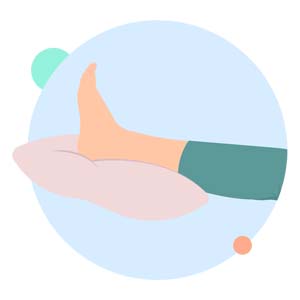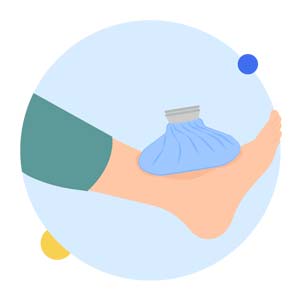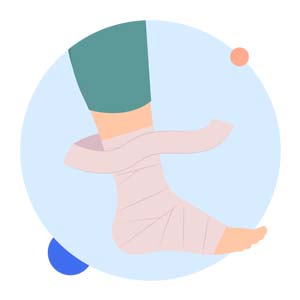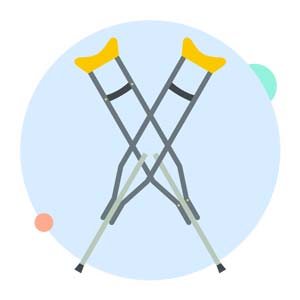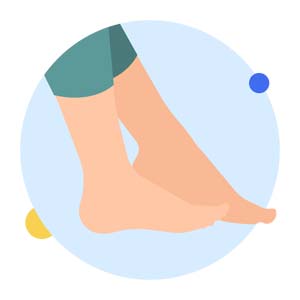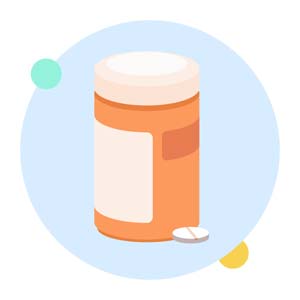Back Pain
If you’re experiencing back pain, you’re not alone. Back pain, one of the most common medical conditions in the US, can range from a dull, recurring ache to sharp, sudden pain. At Saint Vincent Hospital, we have back and spine care specialists
and neurosurgeons to help relieve your back pain.
Click Here to Find an Orthopedist
Move Better, Live Better
If back pain already affects the quality of your life, consider getting advanced and personalized back pain treatment at Saint Vincent Hospital. Our back doctors in Worcester, MA will work with you to give you a course of treatment and recovery options,
focusing on recommending nonsurgical options first.
However, if non-invasive treatment options do not work, we may perform any of our spine surgery procedures suitable for your case. No matter the cause of your back pain, we can help you determine the best plan of action for your back pain through our
skilled, hands-on evaluation and diagnosis.
What Causes Back Pain
Back pain may be caused by structural or medical problems that develop in the spine, muscles, ligaments, tendons or discs in the back. Inflammatory and other medical conditions may also hurt a patient’s back. While certain diseases and traumatic
injuries can cause back pain, here are the common causes of back pain:
- Improper Body Mechanics
- Incorrect Bending or Lifting Techniques
- Poor Posture
- Poor Physical Condition
Our spine specialists use their clinical expertise for a quick, accurate diagnosis to develop a plan of care that fits your needs. We will exhaust every appropriate treatment option before considering surgery. For instance, our interventional specialists
treat back pain with nonsurgical approaches such as medication management and injections.
However, there are cases where prescribed rest, exercise, conditioning programs or physical therapy are insufficient. If a surgical procedure becomes
the right choice, our team of spine treatment specialists, including orthopedic specialists and neurosurgeons, are trained to effectively correct problems related to:
- Acquired and congenital spinal deformities
- Ankylosing spondylolisthesis
- Congenital changes to the backbone
- Degenerative disc disease
- Dislocations and subluxations
- Endometriosis
- Fibromyalgia
- Fractured vertebrae
- Herniated or ruptured disc
- Inflammatory arthritis affecting the spine
- Kidney stones
- Mechanical back dysfunction
- Osteoporosis
- Pregnancy
- Scoliosis
- Spinal stenosis
- Spondylolysis and spondylolisthesis
- Sprain
- Strain and contusions
- Systemic diseases affecting the spine
- Traumatic and overuse spinal injuries
- Tumors that develop on the spine or other back parts (rare)
- Whiplash injuries
- Work-related back pain
What Is a Spine Specialist Called?
The types of healthcare providers who will be involved in treating your back pain will depend on the cause of your condition:
- Neurologists: treat conditions and disorders affecting the brain, spine and nerves
- Neurosurgeons: perform surgery to treat nerve, brain and spinal disorders
- Orthopedists: treat and perform surgery for diseases affecting the joints and bones
- Pain specialists such as anesthesiologists with specialization in the evaluation, diagnosis and treatment of various pain types
- Physical therapists: specialize in strengthening muscles
- Primary or family care doctors
- Rheumatologists: specialize in treating autoimmune disorders and musculoskeletal disease
When Should You See a Spine Specialist?
Depending on the severity of your back pain, you may feel pain only in a specific spot on your back or pain that radiates to your leg, hip or buttocks. You may experience worsening back pain when lifting, bending, sitting, standing or resting. Some people
may feel back stiffness upon waking up with pain that lessens with activity.
You should visit a doctor if your back pain does not improve after a few weeks or if it comes along with fever, difficulty in urinating, unintended weight loss or pain, weakness or numbness in your legs. See a doctor if you feel:
- Back pain after an injury or fall
- Severe back pain that medication does not improve
- Tingling and numbness
Back Pain Treatment
Your doctor may recommend medications to treat your back pain, such as:
- Anti-inflammatory drugs
- Muscle relaxants
- Numbing injections
- Over-the-counter or prescription pain relievers
You may use cold packs to relieve some back pain and hot packs to increase blood flow in your back’s muscles and tissues to promote healing. As much as possible, avoid bed rest. Limit exercise or activities that cause pain. Increase physical activity
at a pace you can tolerate.
When performing daily activities such as pulling, pushing or lifting, properly move your body. Healthy habits such as relaxation, exercise, regular sleep, quitting smoking and a healthy diet can help prevent back pain.
Physical therapy and exercise may help decrease back pain by strengthening the muscles that support your back and improving your posture, mobility and positioning. Consult with your physician before starting an exercise routine. Here are other alternative
and complementary treatments that may relieve your back pain:
- Acupuncture: Chinese practice that uses needles to relieve pain
- Transcutaneous electrical nerve stimulation (TENS): low-voltage electric currents are used to treat pain
- Spinal manipulation: to massage and adjust the spine and muscles
What Are the Different Types of Back Pain Surgery?
Back surgery procedures may be recommended to relieve pain. A doctor must thoroughly assess a patient for surgery, as not everyone may qualify. The type of surgery will depend on a patient’s medical history and the cause of back pain. The doctor
will walk a patient through back pain surgery's risks and possible benefits. Here are standard spine surgery procedures:
- Disc replacement surgery: a surgeon replaces a damaged spinal disc with a synthetic one
- Discectomy and microdiscectomy: relieve pressure on a nerve root or spinal canal by removing part of a herniated disc
- Foraminotomy: treats spinal stenosis by cleaning out and widening the area where the nerve roots leave the spinal canal
- Laminectomy: the doctor eases pressure on the nerves of the back by removing the bony spurs of a patient with spinal stenosis
- Laser surgery: relieves pressure on the nerves by using a laser to reduce the size of a damaged spinal disc
- Radiofrequency lesioning: prevents pain signals from reaching the spinal cord
- Spinal fusion: treats spondylolisthesis and degenerative disc disease by joining together the spinal vertebrae that have slipped from their original position
How Serious Is Back Surgery?
Back pain surgery can carry higher risks than other surgery types because this procedure is done closer to the nervous system. A patient with successful surgery may still take a long time to recover. Some patients may lose their flexibility permanently.
Treatment That Brings Relief
We strive to help you through personalized and compassionate care during your spine care journey. Contact us to receive an appropriate diagnosis on the possible causes of your back pain so we may recommend treatment options
that may ease your pain.
